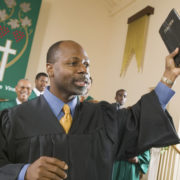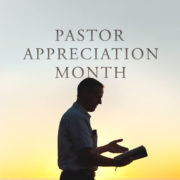Encourages Day of Prayer for First Baptist Church of Sutherland Springs While Warning Congregations Regarding Safety Measures
Sam Rohrer, President of the American Pastors Network , has issued this statement for publication over the weekend regarding the shooting at the First Baptist Church in Sutherland Springs, Texas.
“The American Pastors Network has been standing in the gap for truth around America. We grieve today with our friends in Texas who have suffered unspeakable tragedy at the hands of an armed killer. We encourage pastors in Texas and beyond to join us in a day of prayer for the people of Sutherland Springs.”
While the investigation continues, this tragedy has forced America’s pastors to reevaluate preparation with their local congregations. In addition to praying for those impacted by this tragedy, Rohrer encourages ministers to consider how to best protect their member.
“The reaction of these two local residents is a reminder to all people who love truth, love people and hate evil. There are two principles here that are instructive. First, all that evil needs to triumph is for good people to do nothing. When good people act appropriately, evil is stopped. Second, we must always be prepared and committed to respond to evil at a moment’s notice. To delay could mean loss of life, loss of freedom, or the success of evil.”
Gary G. Dull, Executive Director of the PA Pastors Network, has also issued the following statement:
“On Sunday November 5, 2017, after many of us attended the church of our choice, we heard that Devin Patrick Kelly, a ‘dishonorably discharged’ member of the United States Air Force, walked into the First Baptist Church of Sutherland Springs, Texas and shot nearly 50 people, 26 of whom were killed, including Pastor Frank Pomeroy’s 14-year-old daughter. What a tragedy! It is interesting this took place on the International Day of Prayer for the Persecuted Church for which many of us who attended church yesterday spent time in prayer.
“No one knows why Kelly went on this shooting spree, but we do understand that his in-laws attended the First Baptist Church that he massacred. Having been killed after fleeing the premise, there will be no opportunity to interrogate Kelly to discover his motive for the shooting, although I am sure an investigation will be conducted into the history of his life and actions.
“When things like this take place we all ask, ‘Why?’ Many will immediately say it is a gun issue. Yes, Devin Patrick Kelly used a gun, but the gun is not the main issue. There were many people killed even before guns were invented, so banning guns is not the answer.
“Some will ask, ‘Where was God as those people gathered to worship Him in Sutherland Springs?’ God was where He always is, governing every aspect of the universe to honor and glorify His name. Ultimately the result of this tragedy will be a stronger church, a united community and God will be glorified.
“The answer to why such tragedies occur is found in the total depravity of mankind. In other words, mankind is sinful at its core. Jeremiah 17:9 says, ‘The heart is deceitful above all things and desperately wicked: who can know it?’ Only after one allows his or her heart to be changed through faith in Jesus Christ as personal Savior will events like this be reduced.
“As a pastor, my heart goes out to pastor Frank Pomeroy who has a very heavy burden in trying to support, strengthen and rebuild his broken congregation. We must all pray for him, as well as for the rest of his congregation, the church leadership, family members of the victims, the entire Sutherland Springs community and churches across America. In time, God will heal the broken hearts of those involved as Psalm 34:18 teaches: ‘The Lord is nigh unto them that are of a broken heart.’
“These days churches are considered ‘soft targets’ for those who have a desire to inflict terror where a group of people are gathered. Therefore, the leadership of every church, no matter what the size of the congregation may be, must be vigilant and prepared in advance in the case that a shooter should show up at a church gathering. This preparation must involve having a trained security team present at all events and a plan to protect the congregation should a shooter appear.
“In the meantime, we must pray for the devastated and brokenhearted First Baptist Church of Sutherland Springs, remembering God Himself is the healer of the brokenhearted.
“In addition, we all must remember God is our greatest protector. Psalm 121 reminds us He never sleeps and never slumbers, but watches over us with His care all of the time. We can be assured as we go throughout our day, God is there and His care and provision is with us for He has promised to ‘never leave or forsake us.’
“I offer the following suggestions in light of the shooting in Texas:
- Christians across America must pray earnestly for the First Baptist Church of Sutherland Springs, Texas and their leadership as they work to recover from this tragedy and endeavor to strengthen the congregation.
- Every church must make efforts to have qualified security teams prepared to protect the congregation that gathers to worship, no matter the size of the congregation.
- We all must recognize we are in a spiritual battle and are not just facing flesh and blood but the evil forces of Satan that desire to bring fear and destruction into the hearts of all people.
- We must remember that God is in control and will always work to perform His perfect will and purpose in our lives as we trust Him to provide for us.
- We should acknowledge that Christians will suffer persecution which will become even more intense as we draw closer to the return of Christ according to 2 Timothy 3:12.
- We must all be vigilant and alert as to what is going on around us and be prepared for anything that may come our way according to 1 Peter 5:8.
“Pray for pastor Frank Pomeroy and the congregation of the First Baptist Church of Sutherland Springs, Texas.”
To listen to a Stand in the Gap Radio program on “The Biblical Perspective on Self Defense and Church Security” including practical tips to incorporate a church security program, please click HERE.
To read a complete article featured on Lifezette by APN President, Sam Rohrer, please click HERE.
Photo by Ben White on Unsplash








